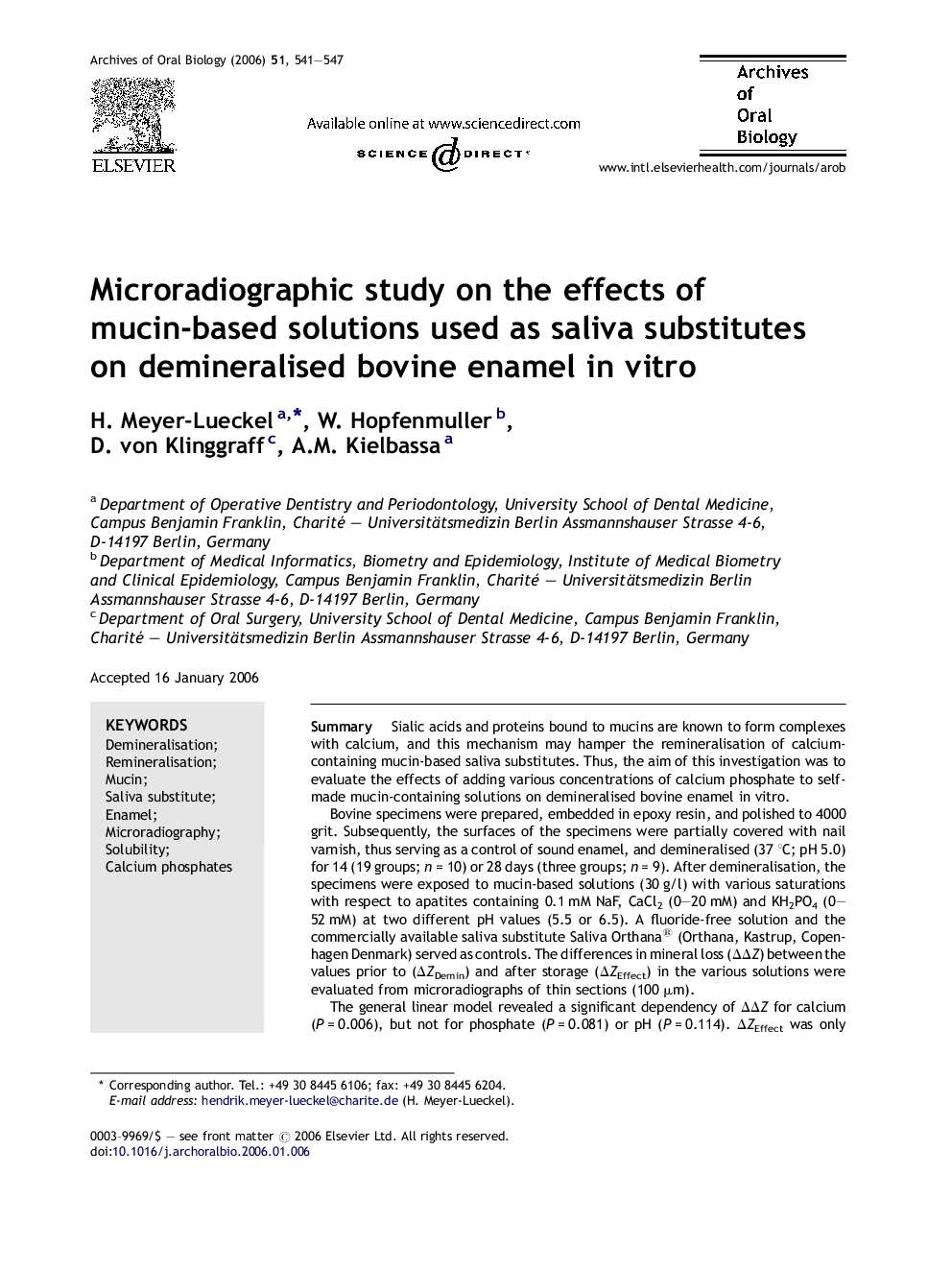| Article ID | Journal | Published Year | Pages | File Type |
|---|---|---|---|---|
| 3121872 | Archives of Oral Biology | 2006 | 7 Pages |
SummarySialic acids and proteins bound to mucins are known to form complexes with calcium, and this mechanism may hamper the remineralisation of calcium-containing mucin-based saliva substitutes. Thus, the aim of this investigation was to evaluate the effects of adding various concentrations of calcium phosphate to self-made mucin-containing solutions on demineralised bovine enamel in vitro.Bovine specimens were prepared, embedded in epoxy resin, and polished to 4000 grit. Subsequently, the surfaces of the specimens were partially covered with nail varnish, thus serving as a control of sound enamel, and demineralised (37 °C; pH 5.0) for 14 (19 groups; n = 10) or 28 days (three groups; n = 9). After demineralisation, the specimens were exposed to mucin-based solutions (30 g/l) with various saturations with respect to apatites containing 0.1 mM NaF, CaCl2 (0–20 mM) and KH2PO4 (0–52 mM) at two different pH values (5.5 or 6.5). A fluoride-free solution and the commercially available saliva substitute Saliva Orthana® (Orthana, Kastrup, Copenhagen Denmark) served as controls. The differences in mineral loss (ΔΔZ) between the values prior to (ΔZDemin) and after storage (ΔZEffect) in the various solutions were evaluated from microradiographs of thin sections (100 μm).The general linear model revealed a significant dependency of ΔΔZ for calcium (P = 0.006), but not for phosphate (P = 0.081) or pH (P = 0.114). ΔZEffect was only significantly reduced compared with ΔZDemin in the group with the highest saturation with respect to hydroxyapatite (P < 0.05; t-test).In conclusion, mucin-based saliva substitutes with an adequate composition are able to remineralise bovine enamel in vitro.
